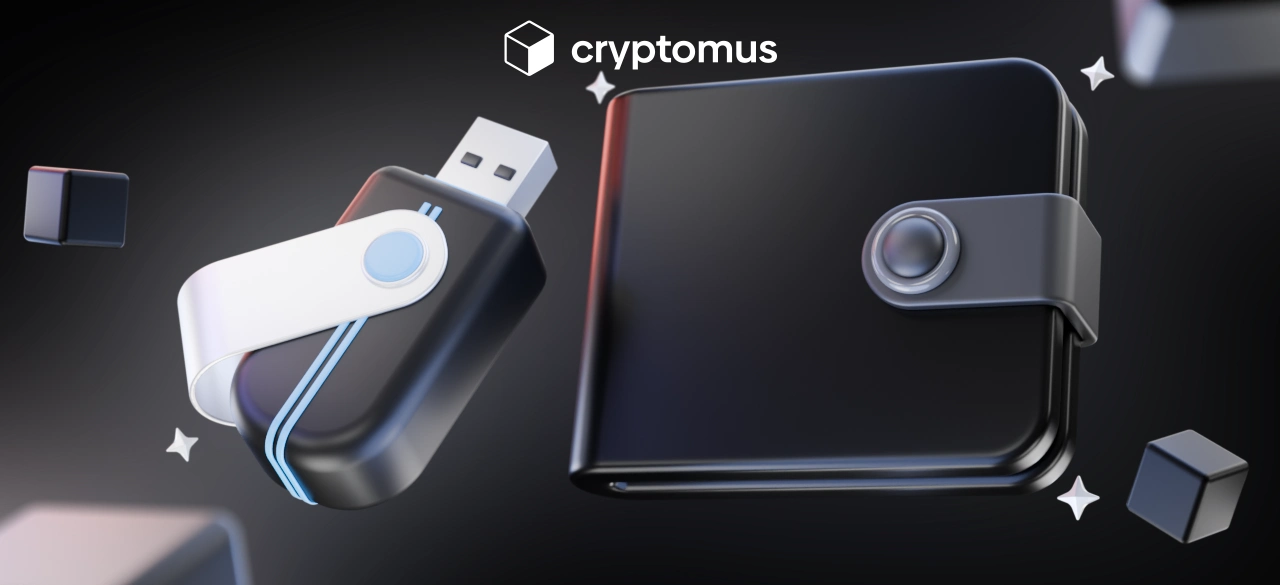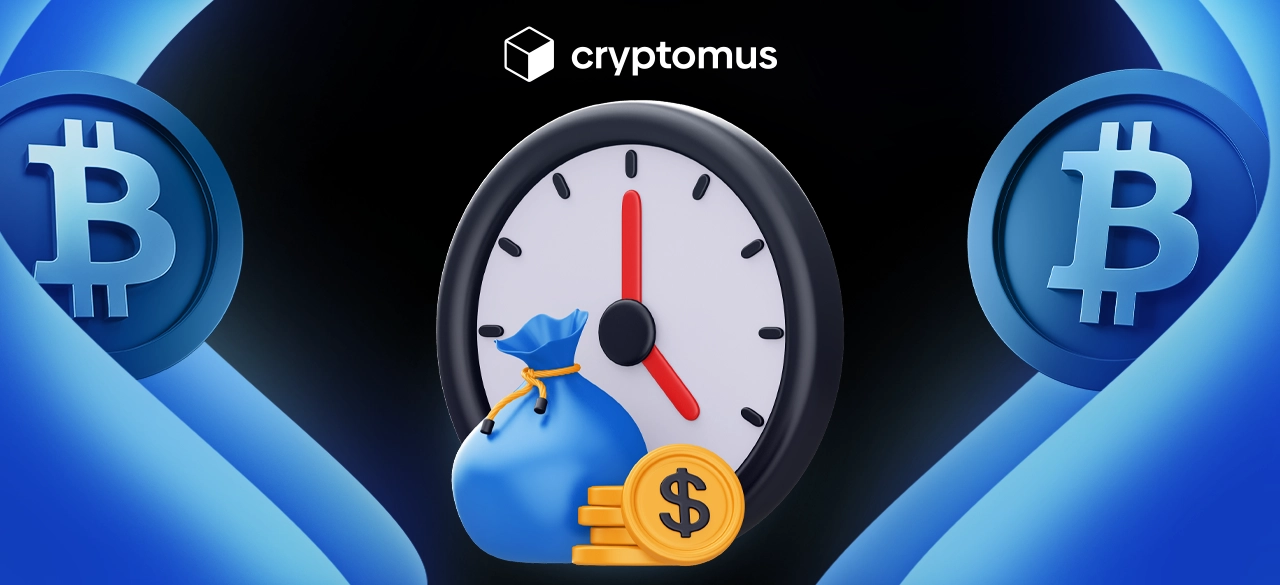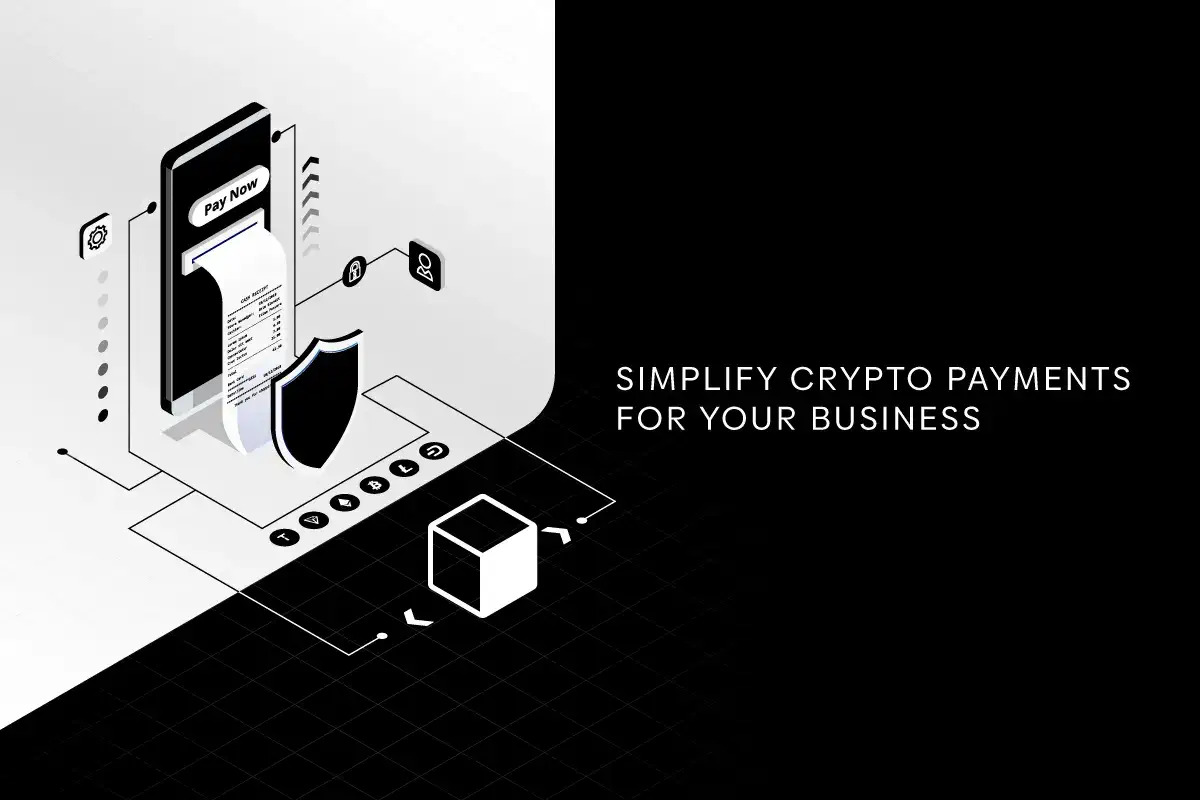
Types Of Crypto Wallets
Table of Contents
Navigating the world of cryptocurrency requires a solid understanding of how to store your assets securely and efficiently. As cryptocurrencies gain traction, safeguarding them against potential threats has become a top priority for investors.
Each crypto wallet type offers unique features, balancing security, accessibility, and usability. For example, Cryptomus Wallet, a universal platform in the crypto space, provides an additional layer of security and functionality tailored for both individual investors and businesses. In this article, we’ll take a closer look at the main types of crypto wallets, highlighting their benefits and potential risks.
What Is A Crypto Wallet?
A crypto wallet is a digital tool that allows users to store, send, and receive cryptocurrency. Unlike a physical wallet, it doesn’t hold the actual currency but instead manages cryptographic keys—unique digital codes that act as a secure link to your assets on the blockchain. These keys are what give users access to their funds, enabling them to initiate transactions and check balances directly on the blockchain.
There are two main elements of every crypto wallet: private and public keys. The private key is a confidential code that grants full control over the assets; it’s crucial to keep it secure, as anyone with this key can access the funds. The public key functions like a bank account number and can be shared to receive funds. Together, these elements make a crypto wallet essential for securely managing digital assets.
Crypto wallets generally come in two types: hot wallets, which are connected to the internet, and cold wallets, which are offline storage solutions. Each type has its own advantages and is suited to different security and accessibility needs.
Types Of Hot Wallets
Hot wallets, also known as software wallets, are digital storage tools connected to the internet, making them highly accessible for users who frequently engage in transactions. These wallets are ideal for quick access to funds and are often chosen by active traders. While hot wallets offer convenience, their internet connection makes them somewhat more vulnerable to online threats than offline storage solutions.
The main types of hot wallets include:
- Desktop Wallets;
- Mobile Wallets;
- Web Wallets.
Let’s take a closer look at each type.
Desktop Wallet
A desktop wallet is a type of cryptocurrency wallet that operates on a desktop or laptop computer, allowing users to store, send, and receive digital assets with private keys stored locally on the device. This local storage offers users more control and security over their funds compared to online storage, making desktop wallets a preferred option for those who prioritize security over mobility.
Desktop wallets come in two forms: light wallets, which don’t require downloading the entire blockchain and are quicker to set up, and full-node wallets, which download the entire blockchain for full verification of all transactions but require more storage and computing power. While desktop wallets offer reliable security, the device itself must be kept secure through updates and antivirus protection to prevent potential vulnerabilities.
Mobile Wallet
A mobile wallet is a cryptocurrency wallet designed for smartphones, enabling users to manage, send, and receive digital assets directly from their mobile devices. With a focus on convenience and accessibility, mobile wallets are ideal for those who need quick, on-the-go access to their funds. They come as app-based wallets, making them especially popular among users who frequently engage in transactions or use their crypto for everyday purchases.
However, since mobile devices are more prone to loss, theft, or malware attacks, mobile wallets can be more vulnerable than desktop or hardware wallets. Security measures like PIN codes, biometric authentication, and, in some cases, two-factor authentication (2FA) are often incorporated to enhance protection. Despite these vulnerabilities, mobile wallets remain a practical choice for active users, balancing accessibility with essential security features.
Web Wallet
A web wallet is an online cryptocurrency wallet accessed through a web browser, allowing users to manage, send, and receive crypto without downloading any software. Web wallets offer maximum accessibility, as they can be accessed from any device with an internet connection, making them ideal for users who need to interact with their funds across multiple devices or locations. This convenience makes web wallets popular among both beginners and active traders seeking ease of use.
However, because private keys are typically stored on the wallet provider’s servers, security largely depends on the reliability and security protocols of the provider. Web wallets are generally more vulnerable to online threats than desktop or hardware wallets, so choosing a trusted provider is crucial. Cryptomus Wallet, for example, is a web wallet solution that combines ease of access with strong security features — passing KYC, enabling two-factor authentication (2FA), and providing a reliable option for managing cryptocurrency online.

Types Of Cold Wallets
Cold wallets, also known as offline wallets, are cryptocurrency storage solutions that are not connected to the internet, providing a higher level of security against online threats. They are ideal for long-term storage of digital assets, making them a popular choice for investors who wish to safeguard their cryptocurrencies. The main types of cold wallets include:
- Hardware Wallets;
- Paper Wallets.
Each type of cold wallet offers unique advantages, making them suitable for different security needs and user preferences.
Hardware Wallets
Hardware wallets are physical devices designed for securely storing cryptocurrency’s private keys, offering one of the highest levels of security among cold wallet options. By keeping keys offline, they protect against online threats, making them an excellent choice for long-term storage. Popular models, such as Ledger and Trezor, feature user-friendly interfaces that support multiple cryptocurrencies.
However, hardware wallets come with some drawbacks. They can be relatively expensive, which may deter casual users or beginners in the cryptocurrency space. Additionally, if the device is lost, damaged, or malfunctions without proper backups, access to the stored assets could be permanently lost. Despite these challenges, hardware wallets remain a reliable option for users seeking to secure their cryptocurrency investments effectively.
Paper Wallets
A paper wallet is an easy method for storing cryptocurrency by printing your public and private keys on a piece of paper, often represented as QR codes. This offline storage option minimizes exposure to online threats, making it a highly secure choice for long-term asset preservation.
Despite their security advantages, paper wallets come with certain risks. They are vulnerable to physical damage, such as fire or water, which could render the wallet unusable and result in the loss of access to funds. Additionally, if not stored properly, paper wallets can be easily lost or stolen. Therefore, it’s essential to create and safeguard paper wallets with care and attention, ensuring they are kept in a secure location.
Custodial And Non-Custodial Wallets
Despite the variety of cryptocurrency wallets available, they can also be classified based on how users interact with them — specifically, by who controls the private keys. This distinction brings us to two primary types: custodial and non-custodial wallets.
Custodial wallets are wallets where a third party, such as an exchange or wallet provider, holds the private keys on behalf of the user. This arrangement simplifies the management of cryptocurrencies, as users do not need to worry about securing their keys. Custodial wallets often involve user-friendly interfaces, making them accessible for beginners. However, this convenience comes with a trade-off: users must trust the third party to keep their crypto assets safe. In the event of a security breach or the provider’s insolvency, users may risk losing their funds.
In contrast, non-custodial wallets give users complete control over their private keys, meaning they are solely responsible for the security of their funds. These wallets can take various forms, including hardware wallets, desktop wallets, and paper wallets. While non-custodial wallets provide greater security and privacy, they also place the onus of responsibility on the user. So, if he loses the private keys or fails to back them up, he could permanently lose access to cryptocurrency. This distinction highlights the balance between convenience and security in managing digital assets.
In conclusion, understanding the different types of cryptocurrency wallets is essential for anyone looking to securely manage their digital assets. From hot wallets, which offer convenience and accessibility for frequent transactions, to cold wallets, which prioritize security for long-term storage, each wallet type serves specific user needs.
By considering factors such as security, convenience, and personal responsibility, users can make informed decisions about which wallet type best fits their needs.
Thank you for reading! Please tell us what type of wallet you use for your cryptocurrency transactions.
Simplify Your Crypto Journey
Want to store, send, accept, stake, or trade cryptocurrencies? With Cryptomus it's all possible — sign up and manage your cryptocurrency funds with our handy tools.
Get Started









